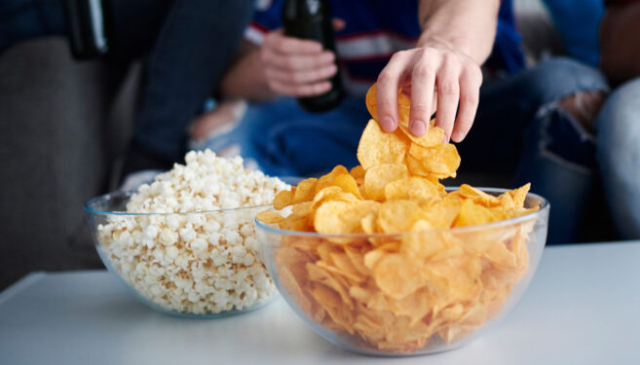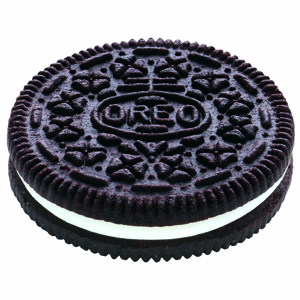Absolutely shocking! A new British Medical Journal report reveals that one in 7 Brits, North Americans and Europeans are addicted to ultra-processed foods. Hooked. Abusing. Dependent on. Doctors say these foods should be labelled ‘addictive’…
 Plain popcorn (left). No fat or flavouring added. Unprocessed treat. Flavoured, salted potato
Plain popcorn (left). No fat or flavouring added. Unprocessed treat. Flavoured, salted potato
chips (right). Fat, salt, flavouring, preservatives added. Ultra-processed treat.
Alarming findings…
The report surveyed 281 studies from 36 different countries. As a preamble to the report’s recommendations, I offer a digest of its findings:
Fourteen percent of adults are addicted to ultra-processed foods.
Twelve percent of children are likewise addicted.
Ultra-processed food addiction is associated with biopsychological mechanisms of addiction and clinically significant problems.
“Understanding of these foods as addictive could lead to novel approaches in the realm of social justice, clinical care, and policy approaches.”
It almost goes without saying in the report that addiction to ultra-processed foods is causing serious health problems for millions upon millions of people around the globe.
And they’re costing the world hundreds of billions of dollars a year to treat.
Report co-author Alexandra DiFeliceantonio, at the Fralin Biomedical Research Institute in the US, added: “Given how prevalent these foods are – they make up 58 percent of calories consumed in the United States – there is so much we don’t know.”
What the report recommends
This is bound to be more than a little controversial. But it needs to be said. And the report puts it upfront, in capital letters:
“Ultra-processed foods high in refined carbohydrates and added fats are highly rewarding, appealing, and consumed compulsively and may be addictive,” it states. “Behaviours around ultra-processed food may meet the criteria for diagnosis of substance use disorder in some people.”
“If some foods high in carbohydrates and fats were to be officially categorised as ‘addictive’, it could help improve health through changes to social, clinical and political policies.”
My take
This blog has, in the past covered findings that some common foods – notably sugar, salt, and fat – are just as addictive or more so than opiates, nicotine or alcohol.
We’ve also given post space to the findings of studies that demonstrated ultra-processed foods can be as addictive as opiates or more so.
I’ve often wondered why governments haven’t acted to place nicotine or alcohol on the same list as highly controlled addictive drugs, and treated them accordingly. I’m also wondering, now, why ultra-processed foods – if they’re as addictive as the new BMJ report says – aren’t on that list, too.
Imagine the headway that could be made if addictive foods were treated like addictive drugs!
But no government, apparently, has the guts to stand up to the giant supermarket food cartels, and the powerful food producer lobby groups, and do what is crying out to be done.
If only the feds would take a closer look, they’d discover that the average voter isn’t a member of any food-related special interest group. And the votes they’d potentially be sacrificing by acting on addictive foods would be minimal, in the greater scheme of things.
~ Maggie J.

